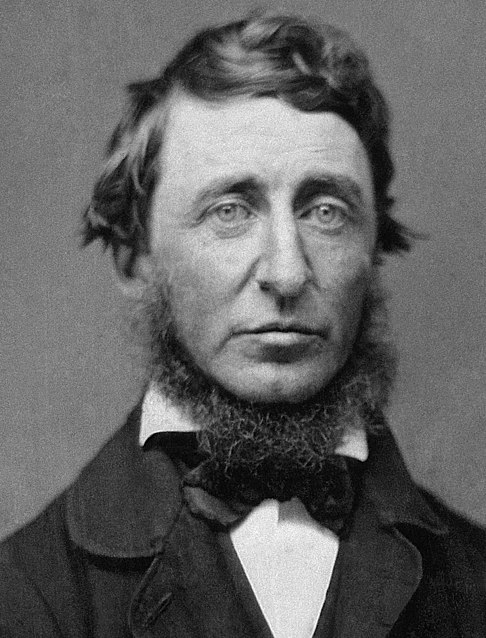
Henry David Thoreau's works have strong underpinnings of Science, Technology and Society. For those unfamiliar with the text, his most famous work, Walden, is Thoreau's personal doctrine of the rejection of modern technology in search of the simplicity of rural life. For two years, Thoreau went off the grid, to use the parlance of our times, and lived in a small cabin near Walden pond in Concord Massachusetts. During this hiatus from society, Thoreau mused about the attractiveness of a simple life, avoiding of taxes, self reliance and problems with contemporary society. Here is a recreation of the cabin that Thoreau lived in, see the resemblance to Mr.
Kaczynski's dwelling in Montana?

Despite being written over 150 years ago, Walden remains the
de facto manual of the rustication movement and the preferred reading of many
rejeceters of technology such as
Theodore Kacynski. However, Walden doesn't only influence extremists like
Kacynski. In an
STS class taught by visit professor Dale Potts on the history of Environmentalism, we discussed the seminal nature of Thoreau's works with regards to
environmentalism as we know it today. Many scholars believe that the modern study of Science, Technology and Society was born in the turbulent decades surrounding the Vietnam War as intellectuals became more
apparent of some of the negative aspects of technologies effect on society and started a large counter culture. Maybe Thoreau was a
hippy born 120 years before his time?
Here are some more links,
Walden (Wiki),
Henry David Thoreau (Wiki),
 Henry David Thoreau's works have strong underpinnings of Science, Technology and Society. For those unfamiliar with the text, his most famous work, Walden, is Thoreau's personal doctrine of the rejection of modern technology in search of the simplicity of rural life. For two years, Thoreau went off the grid, to use the parlance of our times, and lived in a small cabin near Walden pond in Concord Massachusetts. During this hiatus from society, Thoreau mused about the attractiveness of a simple life, avoiding of taxes, self reliance and problems with contemporary society. Here is a recreation of the cabin that Thoreau lived in, see the resemblance to Mr. Kaczynski's dwelling in Montana?
Henry David Thoreau's works have strong underpinnings of Science, Technology and Society. For those unfamiliar with the text, his most famous work, Walden, is Thoreau's personal doctrine of the rejection of modern technology in search of the simplicity of rural life. For two years, Thoreau went off the grid, to use the parlance of our times, and lived in a small cabin near Walden pond in Concord Massachusetts. During this hiatus from society, Thoreau mused about the attractiveness of a simple life, avoiding of taxes, self reliance and problems with contemporary society. Here is a recreation of the cabin that Thoreau lived in, see the resemblance to Mr. Kaczynski's dwelling in Montana?


No comments:
Post a Comment